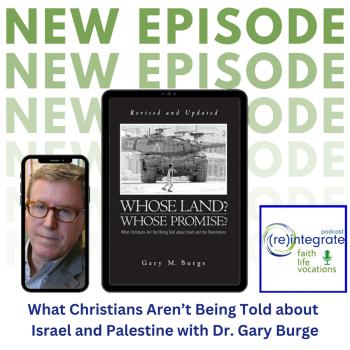Restoring Our Image-Bearing Humanity
Part 1
You are glorious. Well, at least you’re supposed to be. Over the next few weeks, we will explore the amazing implications of the biblical revelation that God has created us as creatures made in the imago Dei, the image of God. This is an amazing biblical truth: Because God is glorious, as we shine as God’s image, we too are glorious.
This is both dignifying and humbling.
We have great dignity in our identity and authority in the work we do. But this truth is humbling because it is a derived dignity and authority. It is from God, and so we thank God for the amazing grace of being created for glory.
Awe-Struck by Our Creator God
What does the word “Glory” in the Bible mean when describing God and/or humans? We assume we know what it means, but our definition might be a bit imprecise – we think it has something to do with radiance or splendor. But what does that mean?
Here is a more specific definition: Both the Hebrew word (kāḇôḏ) and the Greek words (doxa, doxazō) are used in the contexts of God’s honor or status as the one in authority as King, which is symbolized by visible splendor. The Old Testament’s kāḇôḏ can also mean “heavy” or “weighty,” as in ascribing to the LORD glory because of the weight of his authority. The Greek doxa actually means “honor or status associated with character and/or power and authority.” Glory certainly describes our sovereign Lord!
So we read in Psalm 8:
“O LORD, our Lord, how majestic is your name in all the earth!
You have set your glory above heavens.”
This God of ours is so sovereign that he
“established a stronghold against your enemies,
to silence the foe and the avenger.” (vv. 1-2)
 The first time my wife and I took our kids up into the Rocky Mountains, we set up camp around 9,000 feet above sea level, as far away from civilization than they had ever been. When it got dark, I invited them out of their tent to lay on our backs and look up into the vastness of the stars above. In the total silence and total darkness of the wilderness, with the only illumination coming from the stars, we stared at those bright pinpricks in the sky. The more we stared, the more stars we could see. And the more in awe we became with the God who created the enormity of the universe. It made us feel small in comparison.
The first time my wife and I took our kids up into the Rocky Mountains, we set up camp around 9,000 feet above sea level, as far away from civilization than they had ever been. When it got dark, I invited them out of their tent to lay on our backs and look up into the vastness of the stars above. In the total silence and total darkness of the wilderness, with the only illumination coming from the stars, we stared at those bright pinpricks in the sky. The more we stared, the more stars we could see. And the more in awe we became with the God who created the enormity of the universe. It made us feel small in comparison.
The psalmist David felt the same way. He writes in Psalm 8:3-4,
“When I look at your heavens,
the work of your fingers,
the moon and the stars,
which you have set in place,
what is man that you are mindful of him,
and the son of man that you care for him?”
Considering how amazing and glorious God is, we are reminded that we are just mere mortal creatures.
Yet, God Crowns US HUMANS with Glory
The next part of the Psalm is astonishing.
“Yet you have made him a little lower than the heavenly beings,
and crowned him with glory and honor.” (v. 5)
We know that only God is worthy of the crown of glory as our sovereign King. But here is the truth about how he has made humans: We are the only creatures who the King made in the image of God. And that imago Dei is directly tied to our vocation of having authority over the rest of creation. This astonishing fact is revealed in the first two chapters of our Bible:
Then God said, “Let us make mankind in our image, after our likeness, so that they may exercise authority over the fish in the sea and the birds in the sky, over the livestock and all the wild animals, and over all the creatures that move along the ground.” (Genesis 1:26)
“The LORD God took the man and put him in the Garden of Eden to work it and take care of it.” (Genesis 2:15)
God places these newly-minted humans in charge. Like the four children in CS Lewis’s books, who sit on the thrones as the kings and queens of Narnia, though Aslan is the ultimate King, humans are kings and queens under the Ultimate King, the Lord YHWH.
As Psalm 8 says it,
“You made them rulers over the works of your hands;
you put everything under their feet:
all flocks and herds,
and the animals of the wild,
the birds in the sky,
and the fish in the sea,
all that swim the paths of the seas.” (vv. 6-7)
Exercising Our Authority in our Work
So, we are in charge. We are given the vocation of working and taking care of God’s good creation. We are to be stewards of “the works of God’s hands.” We make things using the resources of this earth for the flourishing of all of creation.
Your work is a part of this authority. Just as Adam was called to organize and cultivate and participate as co-creators of more and more stuff, we do the same. You are called by God in a particular way; your work is your way of “exercising authority,” with loving care.
How can realizing that your work is a consequence of your being made with the dignifying and humbling truth that you are an image-bearer of God change the way you view your work this week?
Image by Pittyarat Shinwirarat. Used with permission. Sourced via Flickr.














